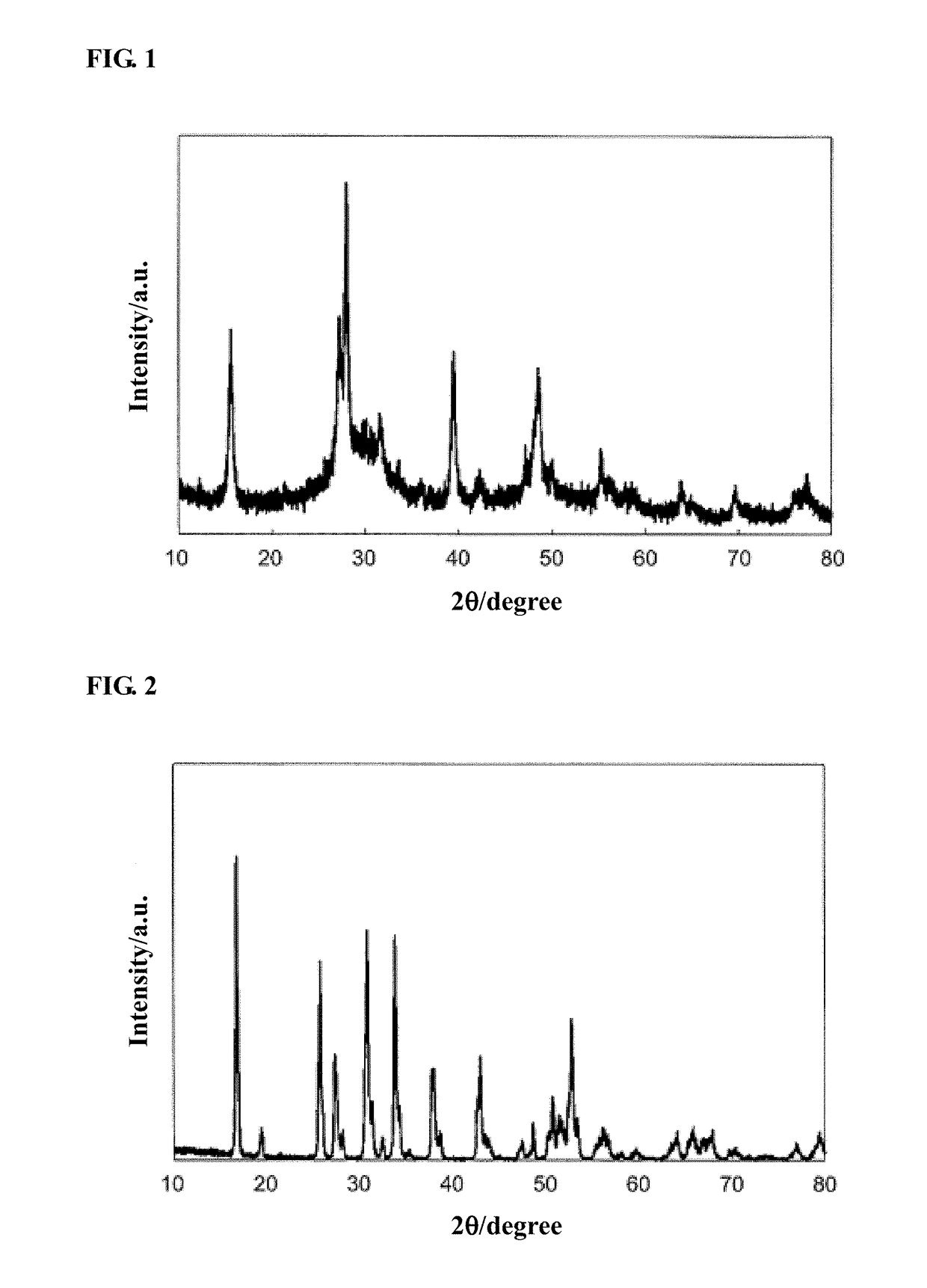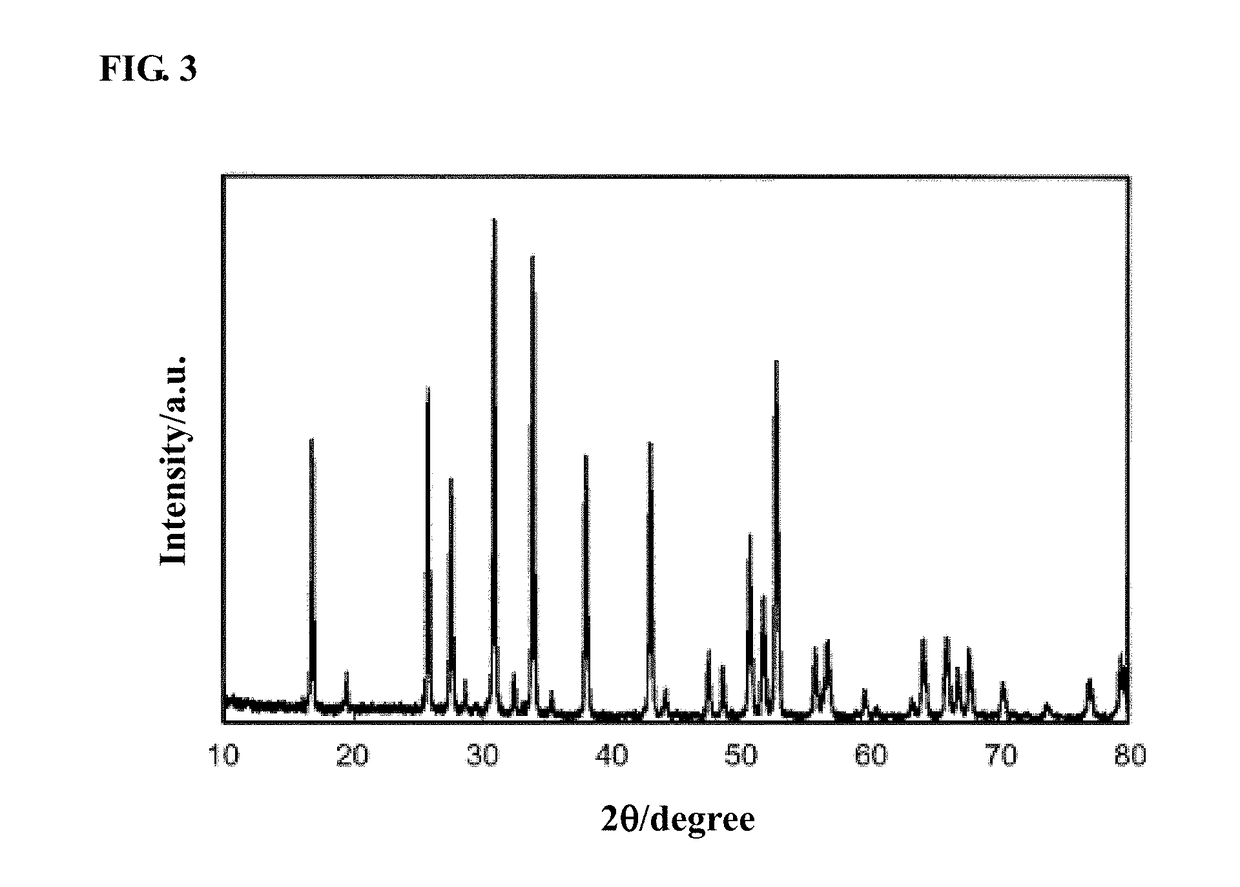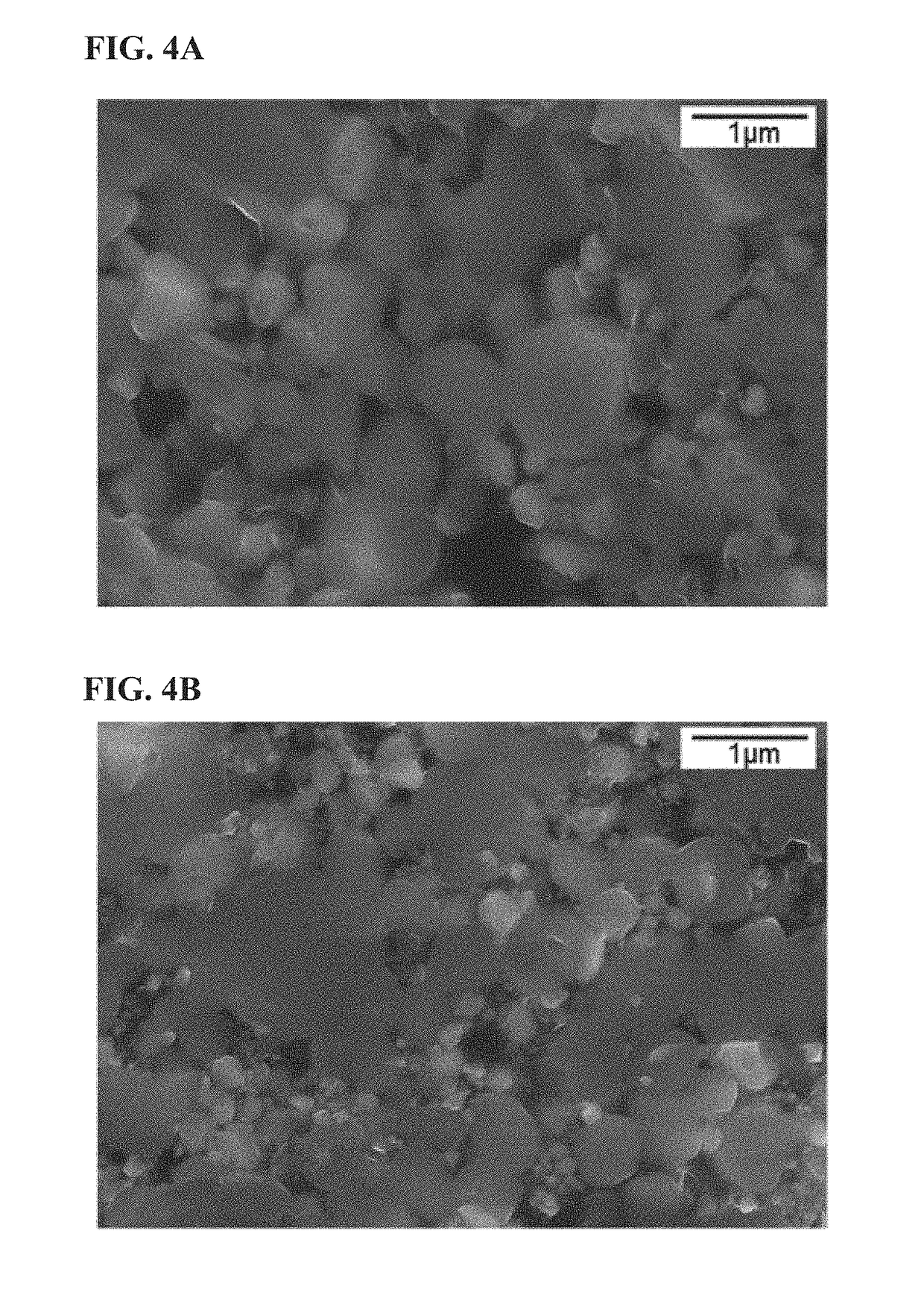Garnet-Type Oxide Sintered Body and Method for Producing Same
a technology of oxide sintered body and carbon dioxide, which is applied in the direction of inorganic chemistry, basic electric elements, electrical apparatus, etc., can solve the problems of decomposition of positive and negative electrode active materials, need for expensive furnaces capable of heating to high sintering temperatures, etc., and achieve high ion conductivity and high density
- Summary
- Abstract
- Description
- Claims
- Application Information
AI Technical Summary
Benefits of technology
Problems solved by technology
Method used
Image
Examples
example 1
[0075]
[0076][Simultaneous Precipitation Step]
[0077]A solution of lanthanum nitrate hexahydrate in water, a solution of zirconium oxynitrate dihydrate in 2N nitric acid and a solution of aluminum nitrate nonahydrate in water were mixed together, thereby preparing an aqueous solution with a La concentration of 0.319 mmol / g, a Zr concentration of 0.213 mmol / g and an Al concentration of 0.021 mmol / g. The prepared aqueous solution was transparent and did not form a precipitate even when left at room temperature. Then, 540 g of the prepared aqueous solution was sprayed into 300 g of 28 mass % aqueous ammonium whereby there was formed a precipitate. The precipitate was separated, washed with water, dried at 200° C. and then subjected to mechanical grinding. The thus-obtained precipitate was analyzed by powder X-ray diffraction measurement using CuKα radiation. The measured X-ray diffraction pattern showed broad peaks assigned to La(OH)3 as shown in FIG. 1.
[0078][Calcination Step]
[0079]A su...
example 2
[0084]A sintered body with crystal grains of cubic garnet-type oxide was produced in the same manner as in Example 1, except that a sintering aid was prepared by mixing Li2B4O7 and SiO2 at 68.5:31.5 (mass ratio). The composition ratio (molar ratio) of the respective elements after the mixing of the calcined substance with the sintering aid was Li:La:Zr:Al:B:Si=7.2:3:2:0.2:0.68:0.22.
example 3
[0085]A sintered body with crystal grains of cubic garnet-type oxide was produced in the same manner as in Example 1, except that: a sintering aid was prepared by adding a 4N aqueous lithium hydroxide solution; and the composition ratio (molar ratio) of lithium and lanthanum after the addition of the sintering aid to the calcined substance was set to Li:La=8.5:3.
PUM
| Property | Measurement | Unit |
|---|---|---|
| density | aaaaa | aaaaa |
| temperature | aaaaa | aaaaa |
| temperature | aaaaa | aaaaa |
Abstract
Description
Claims
Application Information
 Login to View More
Login to View More - R&D
- Intellectual Property
- Life Sciences
- Materials
- Tech Scout
- Unparalleled Data Quality
- Higher Quality Content
- 60% Fewer Hallucinations
Browse by: Latest US Patents, China's latest patents, Technical Efficacy Thesaurus, Application Domain, Technology Topic, Popular Technical Reports.
© 2025 PatSnap. All rights reserved.Legal|Privacy policy|Modern Slavery Act Transparency Statement|Sitemap|About US| Contact US: help@patsnap.com



